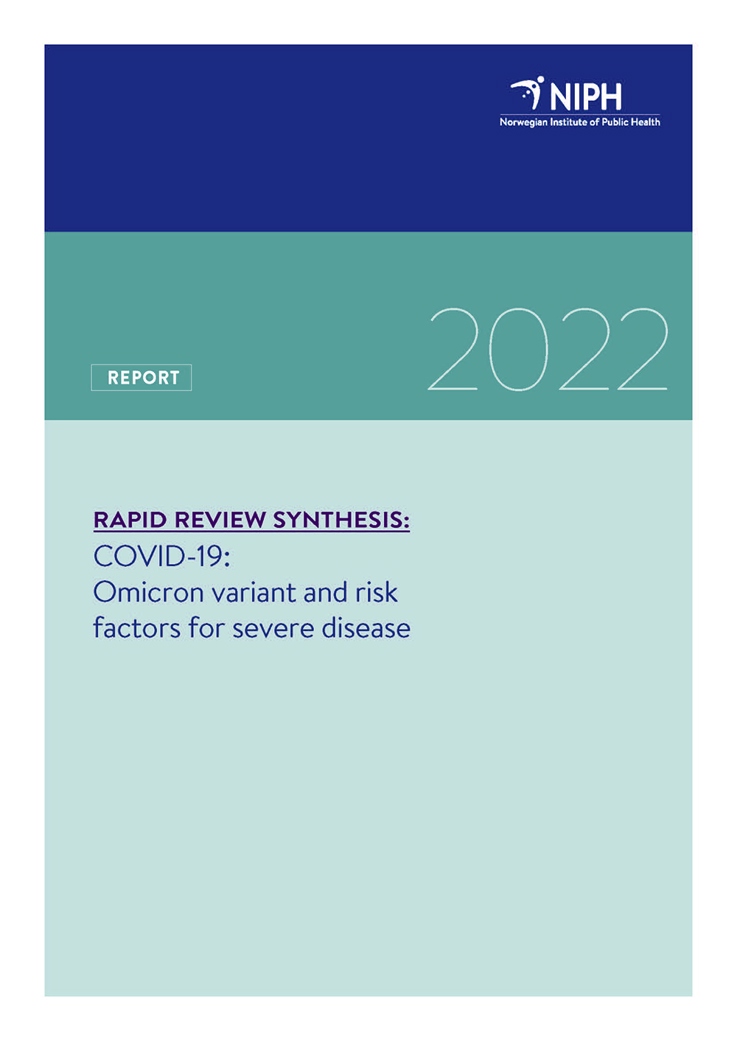COVID-19: Omicron variant and risk factors for severe disease – a rapid review synthesis
Systematic review
|Published
The purpose of this rapid synthesis was to identify research that examines which individual risk factors may predict hospitalization, serious illness, and death after infection with the Omicron variant of SARS-CoV-2.
Key message
The purpose of this rapid synthesis was to identify research that examines which individual risk factors may predict hospitalization, serious illness, and death after infection with the Omicron variant of SARS-CoV-2. The rapid synthesis is based on a literature search in Medline, Embase and Cochrane's COVID-19 register. Two researchers independently reviewed the search results and selected studies for inclusion.
The literature search resulted in 392 unique records, but only one study met the inclusion criteria. The included study used data from a Swedish registry-and compared confirmed cases of COVID-19 from different phases of the pandemic. The study showed that after infection with the Omicron variant:
- Unvaccinated individuals who have not previously been infected with SARS-CoV-2 have a higher risk of serious illness than vaccinated people. Gender, age and number of comorbidities may increase the risk of serious illness. The risk of serious illness in unvaccinated in men aged 40-64 years with two or more comorbidities is 12 percent.
- The risk of severe COVID-19 among vaccinated people younger than 65 years is low for men and women, even for people with comorbidities.
- The risk of severe COVID-19 may be increased among vaccinated people above 65 years, but this only applies to people who also have one or more comorbidities.
Only one study met inclusion criteria; there is a lack of data assessing which individual risk factors and comorbidities have the greatest impact on the risk of serious illness after infection with the omicron variant of SARS-CoV-2.


